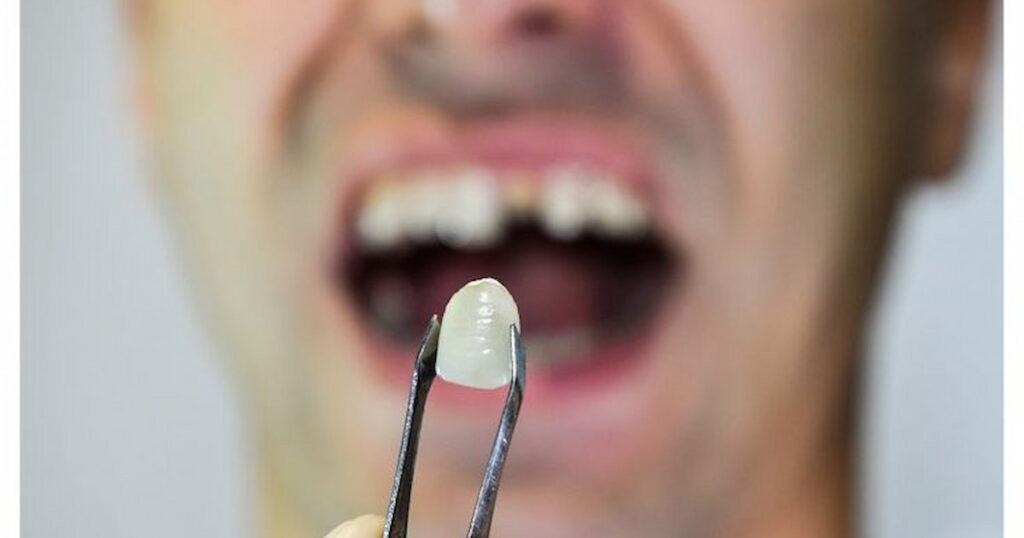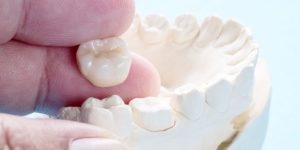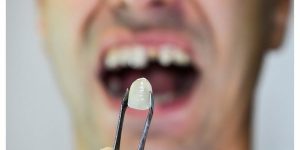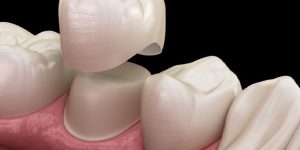A cracked or missing crown isn’t just a cosmetic issue—it can lead to serious oral health risks if left untreated. Dental crowns play a vital role in protecting and restoring your teeth, but when they’re damaged or missing, your oral health can quickly take a turn for the worse. In this blog, we’ll explore why you shouldn’t ignore a cracked or missing crown, the risks involved, and the solutions available to help you maintain a healthy smile.
What Are Dental Crowns and Their Purpose?
Dental crowns are tooth-shaped caps placed over damaged or weakened teeth to restore their shape, size, strength, and function. They’re typically used for teeth that have undergone significant decay, fractures, or root canals. Crowns also play a crucial role in dental restoration, helping to prevent further damage and preserving the health of your natural teeth.
Types of Dental Crowns and Their Lifespan
There are several types of dental crowns, including ceramic, porcelain-fused-to-metal, gold, and zirconia. Each type has its advantages and a typical lifespan of about 10-15 years, depending on the material and how well they’re maintained. Over time, even the most durable crowns can wear down, crack, or fall off due to regular wear and tear or other factors.
Your dentist will first determine if you’re the right candidate for dental crowns, then recommend the best type that fits your needs and conditions.
What Causes Damage to a Dental Crown?
A cracked crown or missing crown can result from several factors. Biting down on hard foods, grinding your teeth (bruxism), or using your teeth as tools can weaken or damage a crown. Poor oral hygiene can also contribute, as decay around the base of the crown can compromise its structure. Accidents or trauma to the mouth are another common cause of crown damage, often leading to cracks, chips, or complete dislodgement.
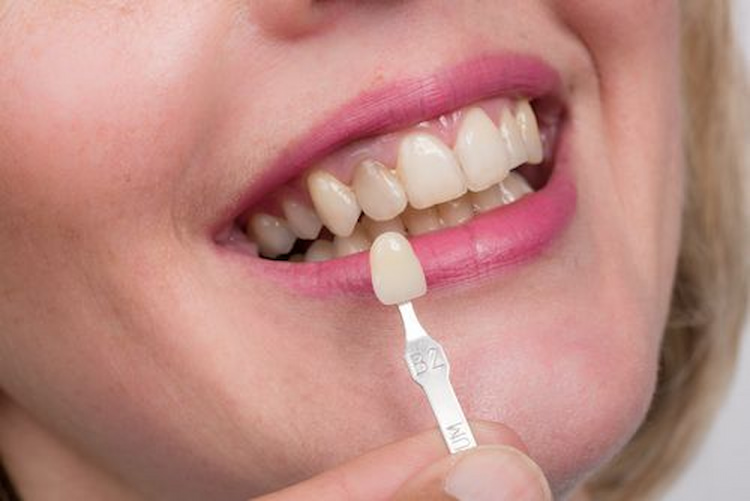
What Are the Risks of Ignoring a Cracked or Missing Crown?
Neglecting a damaged or missing crown may seem like a minor inconvenience, but it can lead to major oral health problems.
Tooth Decay and Infection
When a crown is cracked or missing, it leaves the underlying tooth exposed to bacteria. This exposure can quickly lead to tooth decay, which may spread to the root, causing pain and infection. If untreated, the infection can result in an abscess or even necessitate tooth extraction.
Complications with Bite Alignment
A damaged or missing crown can disrupt the alignment of your bite. Over time, neighboring teeth may shift into the empty space, leading to malocclusion and difficulty chewing. These changes can also strain your jaw muscles, potentially causing discomfort or TMJ (temporomandibular joint) issues.
Impact on the Overall Health of Your Teeth
A cracked or missing crown affects more than just the tooth it was protecting. When the surrounding teeth are forced to compensate for the damaged tooth, they’re subjected to extra pressure and wear. This can lead to additional dental problems, such as fractures, gum recession, or increased sensitivity.
Signs You Need to Replace or Repair Your Crown
Recognizing the signs of a damaged crown is essential for timely intervention.
Visible Cracks, Chips, or Discoloration
If you notice visible damage to your crown, such as cracks, chips, or discoloration, it’s time to visit your dentist. Even minor cracks can worsen over time and expose the underlying tooth to bacteria.
Pain, Sensitivity, or Discomfort
Increased tooth sensitivity or pain when biting down may indicate that your crown is no longer providing adequate protection. These symptoms can signal underlying issues like decay or a compromised fit.
Uneven Bite or Difficulty Chewing
If your bite feels uneven or you’re experiencing discomfort while chewing, it could be a sign that your crown is damaged or has shifted out of place. Ignoring this issue can lead to further complications with your bite alignment.
Restore Your Smile with Pearl Dental Group
Don’t let a cracked or missing crown jeopardize your oral health. Contact Pearl Dental Group today for expert crown repair and replacement solutions designed to protect your smile and keep it looking its best!
What Are the Treatment Options for Cracked or Missing Crowns?
There’s no one-size-fits-all solution for a cracked or missing crown, but your dentist will recommend the best treatment based on the severity of the damage.
Temporary Solutions and Emergency Care
If your crown falls out, temporary solutions like dental cement from a pharmacy can help protect the tooth until you can see your dentist. For emergencies, dentists often provide same-day care to prevent further damage or discomfort.
Permanent Crown Replacement or Repair
In most cases, a cracked crown will need to be repaired or replaced entirely. Your dentist will assess the extent of the damage and either bond the existing crown, replace it with a new one, or recommend additional treatments like a root canal if the tooth is severely compromised.
What Is the Process of Getting a New Crown?
The process of replacing a damaged or missing crown typically involves two appointments. During the first visit, your dentist will assess the tooth, remove any decay or damage, and take impressions to create a custom crown. A temporary crown is placed to protect your tooth while the permanent one is being made. At the second appointment, the new crown is fitted, adjusted for comfort, and cemented in place.
How to Care for Your Dental Crowns
Proper care is key to ensuring the longevity of your dental crowns.
Preventing Damage to Your Crowns
Avoid habits like chewing ice, biting hard objects, or grinding your teeth, as these can weaken or crack your crowns. Using a nightguard can help protect against bruxism, which is a common cause of crown damage.
Daily Maintenance and Oral Hygiene Tips
Maintain good oral hygiene by brushing twice a day with fluoride toothpaste, flossing daily, and rinsing with an antibacterial mouthwash. Regular dental check-ups are essential for monitoring the condition of your crowns and catching potential problems early.
What Are the Alternatives for Dental Crowns?
If a dental crown isn’t the right option for you, your dentist may suggest alternatives like inlays, onlays, or veneers. These options are less invasive but may not provide the same level of protection as a crown for severely damaged teeth. Dental implants or bridges can also be considered if the tooth is beyond repair.
Conclusion
A cracked or missing crown is more than just a minor inconvenience—it’s a serious issue that can jeopardize your oral health if left untreated. From tooth decay and infections to bite problems and overall dental health risks, the consequences of ignoring crown damage are far-reaching. The good news is that with timely intervention, we at Pearl Dental Group with modern crown repair and replacement solutions can restore both function and aesthetics to your smile.
FAQs
1. What causes a dental crown to crack or fall off?
Dental crowns can crack or fall off due to trauma, biting down on hard objects, or natural wear and tear over time. Poor oral hygiene and grinding your teeth can also weaken the crown’s structure.
2. Is it safe to leave a cracked crown untreated?
No, leaving a cracked crown untreated can lead to tooth decay, infection, and further complications. It’s best to address the issue promptly to avoid more extensive dental problems.
3. How can I tell if my crown is damaged?
You might notice visible cracks, chips, or discoloration, as well as increased tooth sensitivity or discomfort. Changes in your bite or difficulty chewing can also indicate crown damage.
4. What should I do if my crown falls out?
If your crown falls out, rinse it with water and try to protect the exposed tooth with dental cement or gauze. Contact your dentist immediately for professional care.
5. How much does it cost to replace a missing crown?
The cost of replacing a crown varies based on the material and complexity, ranging from $800 to $2,500 per crown. Dental insurance may cover part of the cost, so check with your provider.



